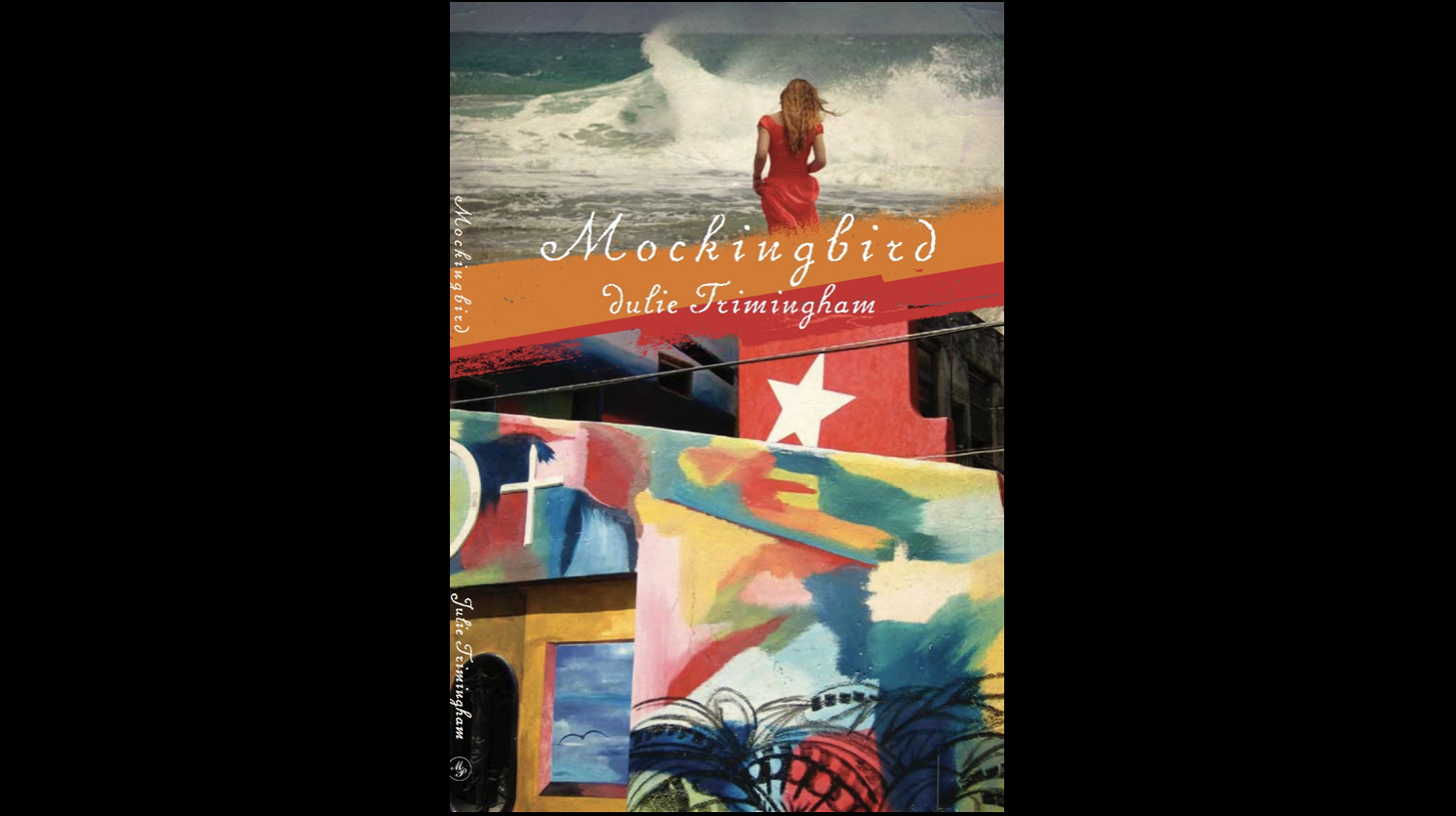“A novel of quiet passion and rare beauty, Mockingbird is a testament to the power of pure, uncluttered language—a confluence of feelings and physicality that will draw you back, line after graceful, memorable, line.” Gina Nahai, author of Caspian Rain and Moonlight on the Avenue of Faith
“Julie Trimingham’s impressive debut novel unfolds like a fever dream. Written with sensual and intoxicating prose, Mockingbird is an original love story that may linger with you long after you close this slender book.” Jim Lynch, author of Truth Like the Sun and The Highest Tide
“Julie Trimingham’s Mockingbird is a novel teeming with yearning, with the indescribable smells and tastes of Cuban ardor. This tale of passion and its smudged fate, its undeniable allure, intensifies with each improvised move, so that readers have to gasp for breath, yet cannot help but follow this impossible seduction, and the center of gravity that shapes the beauty known as longing.” Aritha van Herk, author of Restlessness and Mavericks
“Julie Trimingham’s Mockingbird is a terrific read that will leave you questioning right and wrong, and the bond between mother and child. Trimingham’s observations—of Havana’s corroded beauty, of a lover who can’t love, of a baby’s easy joy—are not just exact but piercing. Literary yet fast-paced, electric yet refined, this is a hurricane of a book, by an author to keep on watching.” Kristen den Hartog, author of The Girl Gian and Origin of Haloes
“…This is a book of gorgeous language, so rich and self-assured I found myself re-reading sentences just for their music. How can anyone’s first novel have this much confident, fully-formed talent on display? The story itself is a tale of a woman–a young, white, North American actress–who finds a seemingly abandoned child in Cuba. In her well-meaning efforts to care for the child and her visions of giving it “a better life,” we see her moral ambiguity, and possibly a kind of cultural arrogance. As she bonds with the child, she leaves a trail of wreckage in her wake. But what’s more interesting, at least to me, is what we come to understand about the narrator through her first-person subjectivity. In the tradition of Huck Finn, these are truths the narrator cannot see in herself… I highly recommend it.” Dylan Tomine, author of Closer to the Ground
I’ve never been to Cuba, but I could see it, hear it, smell it, taste it and feel it in this lyrical novel. It’s a book that is quite literally and literarily sensual . But as much as this is a story of place, it’s also a story of longing and identity, of relationship and of the conflict of one’s own desires and values. Like the very best of novelists, Trimingham takes us outside of ourselves to explore life’s most persistent questions. Chuck Robinson, co-founder of Village Books in Fairhaven and past president of the American Booksellers Association
“Theft and reclaiming what has been lost is a running theme in Cristina Garcia’s King of Cuba and Julie Trimingham’s Mockingbird…In Mockingbird by Julie Trimingham, a white woman named Mia follows her academic lover to Cuba since she hasn’t been able to find acting jobs back in the states. What we have here is a lush, beautifully descriptive photomontage, or filmic narrative of Cuban scenery: the malecón, their trip to Trinidad, their living quarters in Miramar: “a manicured neighborhood of twentieth-century villas that are now embassies and corporate headquarters. Ours was a low-slung concrete building that clung, mollusk-like, to the edge of the harbor. The shore is craggy, and they’ve built a wall along it, straight up from the rocks, a littoral girding. We had a corner room up top, with windows that gave onto the water.” Mia is unhappy. She has been waiting for a commitment from Alex, a conventional proposal, which, at this point, seems impossible. Instead, what appears is a baby left in a car and Mia’s theft of a Cuban child. Or is it theft? This is not as much about Cuba as it is about the outsider/the white privileged individual entering a Latin American country and “taking over” in an effort to achieve a sense of self. The lush prose accentuates all that is lacking in Mia. We follow her every foible which allows the reader to understand her motivations (as we do with Goyo and Fidel in King of Cuba). Trimingham has worked for a number of years as a filmmaker, and in the realm of fiction, her work in film has probably helped her develop such razor sharp, beautiful descriptive scenes. It’s interesting to read King of Cuba and Mockingbird back-to-back. García’s novel is internally Cuban (with bombastic characters) while Trimingham’s is external, giving us much more of the Havana/Trinidad scenery as well as the ineptitude of the white Anglo foreigner (Mia) on an island she seems destined never to understand.” Amelia Montes, writer, professor, and Director of the Institute for Ethnic Studies at the University of Nebraska:
“Scintillating.” Jaspreet Singh, author of Helium, Chef, and Seventeen Tomatoes
“When a wandering tourist in Cuba comes upon a baby abandoned in a car in the blistering sun, her life of ennui is upended. Beautifully written, Trimingham’s poetic soul shines in this impressionistic novel that reveals those metaphoric meanings that reside at the edges of our lives. I loved this book.” Paul Hanson, in The Chuckanut Reader
